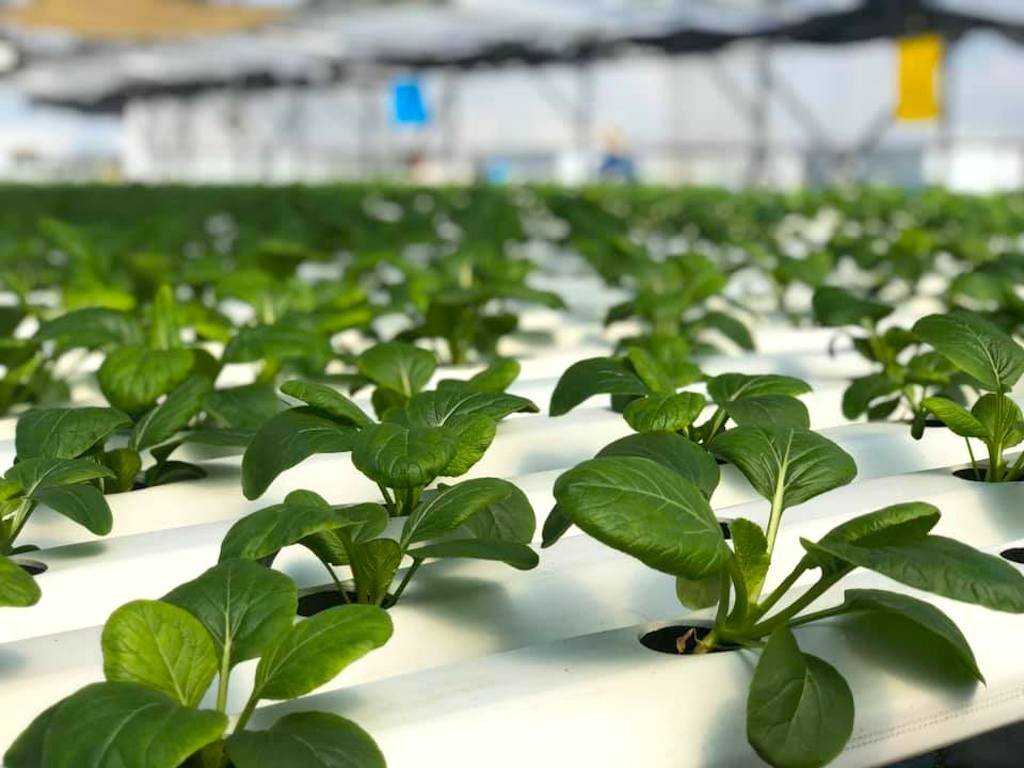3 Mins Read
Nine urban farms in Singapore have been awarded close to S$40 million (US$29.3 million) under the government’s latest grant focused on boosting the city-state’s local food production and food security. Most of the urban farms are focused on growing fresh vegetables and fruits using tech-forward solutions such as AI solutions.
The money was awarded by the Singapore Food Agency (SFA) as part of the country’s recent “30×30 Express” grant launched earlier this year amid the pandemic, which was aimed at increasing Singapore’s local food production to meet 30% of its demand, up from the current 10%, sheltering the city from global supply chain disruptions. It will be used to help these projects build additional greenhouses, improve technology and automation and the use of AI.
“While we continue to plan to tackle our long-term challenges, we also need to respond swiftly to the immediate global food supply challenges posed by the Covid-19 pandemic,” said Grace Fu, Minister for Sustainability and the Environment. “Supporting our agri-food industry and augmenting their production capabilities remains a key strategy in strengthening Singapore’s food supply resilience.”
The grant builds on top of the city-state’s earlier S$100 billion (US$72 billion) plan to adapt to a climate-stricken future, which included a S$140 million (US$101) self-sufficiency initiative focused on boosting the city’s food production capacity.
While we continue to plan to tackle our long-term challenges, we also need to respond swiftly to the immediate global food supply challenges posed by the Covid-19 pandemic. Supporting our agri-food industry and augmenting their production capabilities remains a key strategy in strengthening Singapore’s food supply resilience.
Grace Fu, Minister for Sustainability and the Environment
While the initial grant had a budget of S$30 million (US$21 million), the SFA had to increase the budget to support all nine companies’ proposals, which were selected based on productivity, feasibility, economic viability and farming capacity.
According to the Straits Times, seven of the nine companies so far have accepted the grant, including six high-tech vegetable farms (ComCrop, Green Harvest, Indoor Farm Factory Innovation, LivFresh, Genesis One Tech Farm and VertiVegies), and one farm that produces eggs, Chew’s Agriculture.
Indoor Farm Factory Innovation, in particular, plans to use the grant money to build an indoor farming system that is driven by AI solutions to monitor the growth of vegetables, as well as an advanced environmental control system that can ensure the highest productivity all-year round and a water treatment solution that minimises bacteria and extends the shelf-life of produce.
We urge consumers to support our local farms and buy local produce, which can be identified easily by our new SG Fresh Produce logo.
Lim Kok Thai, SFA Chief
The SFA also announced that consumers can now easily spot food items on supermarket shelves that have been locally produced, thanks to a new labelling scheme.
“We urge consumers to support our local farms and buy local produce, which can be identified easily by our new SG Fresh Produce logo,” said Lim Kok Thai, SFA chief executive officer.
Earlier last month, Singapore’s Ministry of Sustainability and the Environment (MSE) announced that it will prioritise a sustainable recovery from the coronavirus pandemic. The ministry has promised that this plan will create at least 4,000 “new and upgraded” jobs within the year, and that this figure will grow to more than 50,000 over the next ten years.
“In a global landscape characterised by pandemics, climate change, and resource constraints, sustainability has become increasingly important,” said Fu during the announcement. “It has always been part of Singapore’s DNA. But we will push for it to be at the heart of our plans, policies and processes.”
Lead image courtesy of ComCrop.




